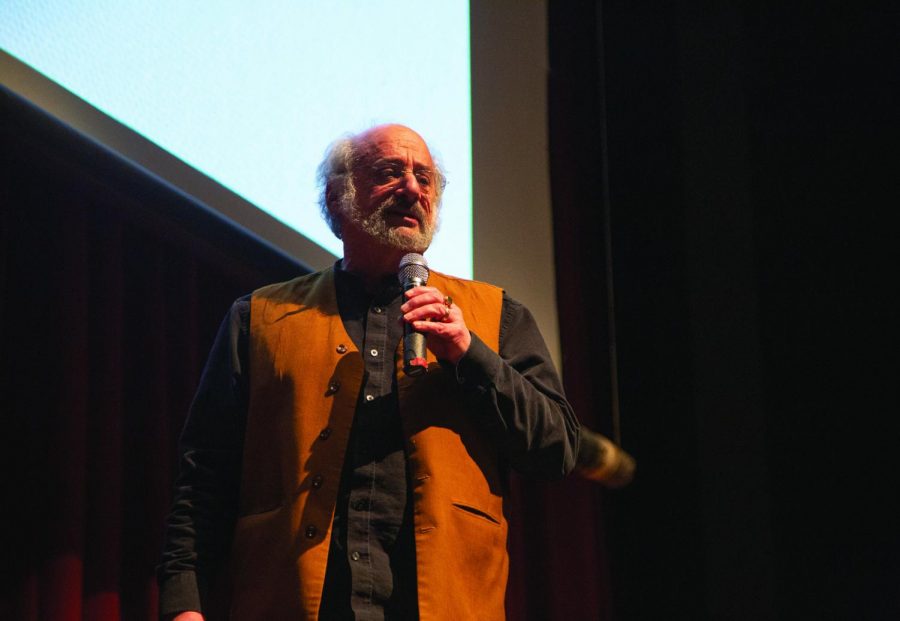Preston Lecture Asks: “Why Be Good?”
The annual Preston Lecture has been bringing accomplished speakers to the school since 1992.
On Monday, February 17, history and social science students of various grades gathered in Walker Auditorium for the 2020 edition of the annual Preston Lecture. Presented by the Edward B. Preston Memorial History Speakers Fund, this year’s talk was given by Dr. Jay L. Garfield. Having taught internationally at universities in Australia, India, and Singapore as well as at Harvard, Garfield is currently the Doris Silbert Professor in the Humanities at Smith College.
A distinguished academic well-versed in a variety of subjects, Garfield specializes in religion, philosophy, psychology, ethics and metaphysics, with a particular emphasis on Tibetan Buddhism. Throughout his career, Garfield has garnered much praise from academics for his role in broadening Western minds to other forms of philosophy. As an educator, Garfield is keen to remind his students that Indian, Chinese, and other Eastern philosophies are vital components of philosophical study.
In New York Times article, “If Philosophy Won’t Diversify, Let’s Call It What It Really Is,” Garfield wrote, “We hope that American philosophy departments will someday teach Confucius as routinely as they now teach Kant, that philosophy students will eventually have as many opportunities to study the “Bhagavad Gita” as they do the “Republic,” ….
During the lecture, Garfield introduced the fundamental beliefs of the ancient Asian philosophy, and outlined Buddhism’s contributions to contemporary morals and ethics. He talked about what Buddhism can offer in a robust conversation between Western and Eastern philosophies. In addition, Garfield argued that some questions that Western philosophy struggles to answer can be addressed more fully by Buddhist philosophies.
Garfield also ruminated on one of the fundamental questions of contemporary ethics: Why be good? The difference, he says, between the Buddhist mindset and Western beliefs goes back to the idea of collectivism in contrast to individuality.
According to Garfield, his main purpose for giving the lecture was to ensure that people keep their minds open to Buddhist morals in the discussion over contemporary ethics.
Nico Petersik ’21 said, “As someone who grew up in a household where [we] often adhered to Buddhist philosophy, I greatly appreciated the lecture. I’m pleased that people have learned about a new way of thinking, and that certain misconceptions and preconceived notions people may have had about ethics were corrected.”
Although this lecture has ended, Garfield will continue to diversify the fields of philosophy and religion, ensuring that future generations keep their minds open. Those interested in Garfield’s work can check out his latest book, The Concealed Influence of Custom, which examines David Hume’s famous book, A Treatise on Human Nature.





